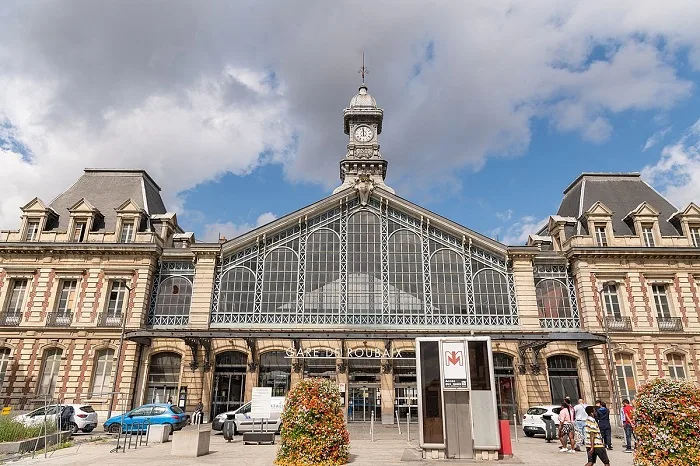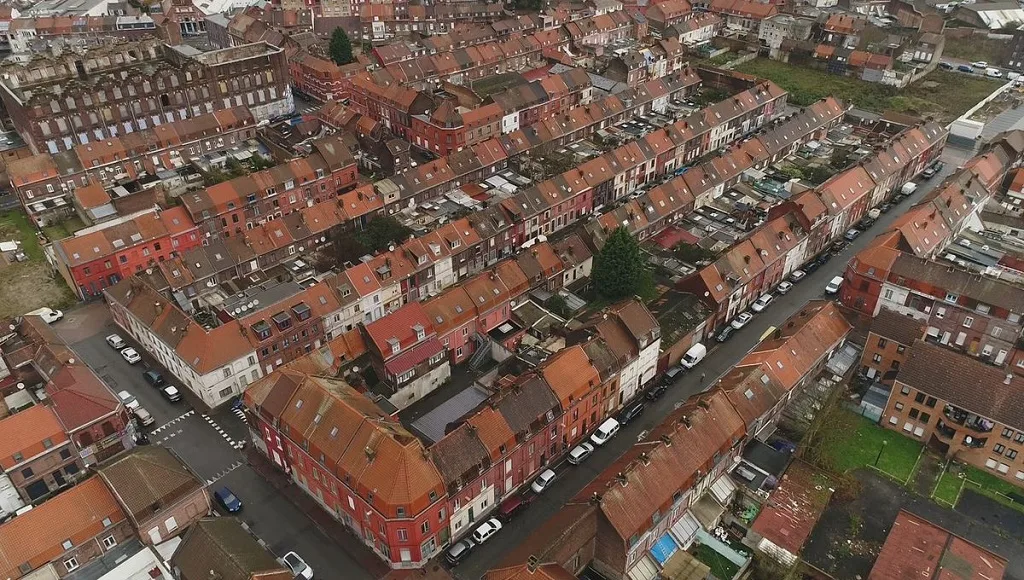
Roubaix: Why You Should Visit This City
Roubaix, located in the northern region of France, is a city with a rich history and vibrant culture that makes it a fascinating destination for travelers. Founded in the 9th century, Roubaix has evolved from a small village into a bustling urban center. Its strategic location near the Belgian border and its role as a major textile industry hub during the Industrial Revolution have significantly shaped its development. The city’s historical significance is evident in its architecture, museums, and cultural institutions that tell the story of its growth and transformation over the centuries.
The history of Roubaix is marked by its foundation in the 9th century, during a time when the region was undergoing significant political and social changes. Initially a small rural settlement, it began to grow in importance due to its location on trade routes between France and Flanders. By the 19th century, Roubaix had become one of the leading centers of the textile industry in Europe, earning the nickname “the Manchester of France.” This period of industrial prosperity brought wealth and development, leading to the construction of many of the city’s notable buildings and the establishment of its industrial heritage.
Famous Personalities
Roubaix is also known as the birthplace of several famous personalities who have made significant contributions in various fields. For instance, the city is the birthplace of Jean-Baptiste Lebas, a prominent politician and mayor who played a crucial role in improving the living conditions of the working class during the early 20th century. Another notable figure is Édouard Lalo, a renowned composer whose works are celebrated in classical music. These individuals, among others, have left an indelible mark on Roubaix, contributing to its cultural and historical legacy.
The artistic heritage of Roubaix is further enriched by the presence of artists such as Eugène Leroy, whose works are displayed in galleries and museums across the city. These personalities have helped shape Roubaix into a city that values creativity and cultural expression, making it an inspiring place for visitors and residents alike.
Cityscape
Walking through Roubaix, one can’t help but admire its unique blend of historical and modern architecture. The cityscape is characterized by its grand industrial buildings, many of which have been repurposed into contemporary cultural venues. Landmarks such as the Roubaix Town Hall and the St. Martin Church stand as testaments to the city’s rich architectural heritage. The town hall, with its impressive façade and intricate details, is a symbol of the city’s prosperous past, while the St. Martin Church offers a glimpse into Roubaix’s religious and cultural history.
Attractions
One of the must-visit attractions in Roubaix is La Piscine Museum, housed in a former Art Deco swimming pool. This unique museum features an impressive collection of sculptures, textiles, and ceramics, blending the city’s industrial heritage with its artistic inclinations. Another notable site is the Manufacture des Flandres, a museum dedicated to the textile industry, where visitors can learn about the techniques and history of textile production that once dominated the region. Additionally, the Villa Cavrois, a modernist mansion designed by Robert Mallet-Stevens, offers insight into early 20th-century architecture and design.

Cultural Institutions
Roubaix is also home to numerous cultural institutions such as the National Theatre of the Nord-Pas-de-Calais and the Colisée Theatre, which host a variety of performances ranging from classical music to contemporary theatre. These venues not only enrich the cultural life of the city but also provide a platform for local and international artists to showcase their talents. The city’s vibrant cultural scene is a testament to its commitment to preserving and promoting the arts.
Why You Should Visit
Adding Roubaix to your travel itinerary is an excellent decision for anyone interested in history, culture, and the arts. The city offers a unique blend of historical significance and modern attractions, making it an ideal destination for a diverse range of travelers. Whether you are exploring its museums, attending a theatrical performance, or simply walking through its historic streets, Roubaix promises an enriching and memorable experience. Its strategic location, coupled with its rich cultural offerings, ensures that visitors will leave with a deep appreciation for this remarkable city.
